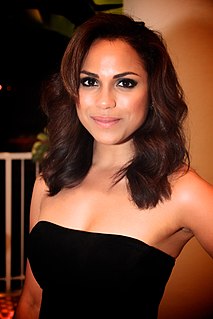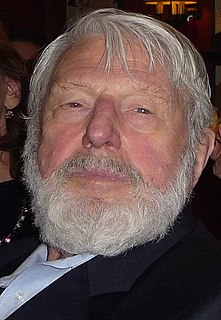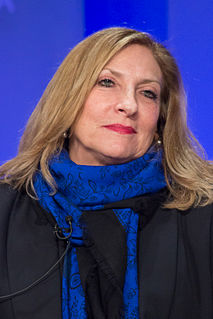A Quote by George Clooney
As a director, I do very few takes, because I feel like you hire the right actor and they'll do the job right. And the directors that I've worked with and had the best luck with - Jason and [ Steven] Soderbergh and the Coen brothers - all have been that kind of director.
Related Quotes
Very rarely have I worked with a director where we've been at odds. And by the time you've actually talked to somebody and you have the job, there's something that they see in you that they want you to bring to the character. And the best director says very little to you, acting-wise. They usually just say, "Okay, here's the shot." It's their job to do all that stuff, and your job's to do the acting. So it's very rare that somebody will say, "Oh, no. I conceived this very differently".
I'm the type of actor that believes the director has to be in charge. I've been on sets where the actor's ego was the most important thing, and with a director that messes it up. But I don't like a dictator, I want it to be collaborative - the best idea wins. If I feel respected, and I'm going to give that back. If a director wants to try something, cool, I'll give it back. I also feel like they cast me for a reason, so I'm going to make my mark on it... let me do my thing.
It is one of the few elements in the process that a director really, really can't control: an actor's performance. If you have a director that understands that, it's comforting to an actor. You're starting the relationship more as a collaborator, rather than as an employee or some kind of a soldier trying to execute something you don't organically feel.
I like to have fun at work. It's okay if I don't. I've had that a few times. But generally, I'm someone who has a lot of fun at work, because I like my job. I think it's a fantastic job, at least that part of it is a fantastic job. And I like to have fun, and I personally feel that whether you're talking about the cast or the crew or the director or any combination thereof, that when people feel involved and comfortable and they feel like their work is being supported, that's the best environment to do good work.
With a director it's all about the work; I'd work with a great director over - you know, I'm not the kind of actor who that doesn't go, 'I want to play this role.' It's more like, 'I want to work with this director,' regardless of what the role is because if it's a good director, you'll probably find a good role because it's a decent film. But a mediocre director will always make a mediocre movie.
John Huston was the kind of director that totally left you alone. Not every actor always does it right, every time, but most of the time he was re-directing someone. He was making tight adjustments, and not even in terms of interpretation because he knew that by the time that the character had been filmed... well, he got it right when he cast you.
In Hong Kong, in our generation that started out in the 1970s, being a director wasn't a big deal. We didn't even have director's chairs. We weren't particularly well paid. The social standing of a film director wasn't that high. It was a sort of a plebeian job, a second or third grade one. And the studio heads are always practical, there's never any fawning because someone is a director. There's very little snobbery about one's position as a director. The only ones people treated differently were those that were also stars; or the directors who also owned their companies.
Any good director creates a playground. That's what they do. They hire the right actor, open the door and let them play because stuff will happen, right then and there. The audience wants to believe that what's going on is happening for the first time, ever. That's what acting is. That's what good scene writing is.
It's true that I don't think I'd be a good director. If I were a director, I'd try to hire the best people I could and then leave them alone. I don't know much about cameras or lighting, so I'd make sure that I had a really good cameraman who understood lenses and lighting, and I say to him, "This is the scene we have to shoot and this is what I think it should be, you go do it." Same with actors. But really, very good directors who know everything do basically the same thing. They hire you and then they leave you alone.
I certainly would never overstep my bounds and make suggestions to a director. As an actor I'm trying to fit to the best of my abilities within the director's vision, and trying to find some happy rapport where we can both bring something to it that's fresh. Usually I've been lucky in working with directors who have trusted my instincts.




































